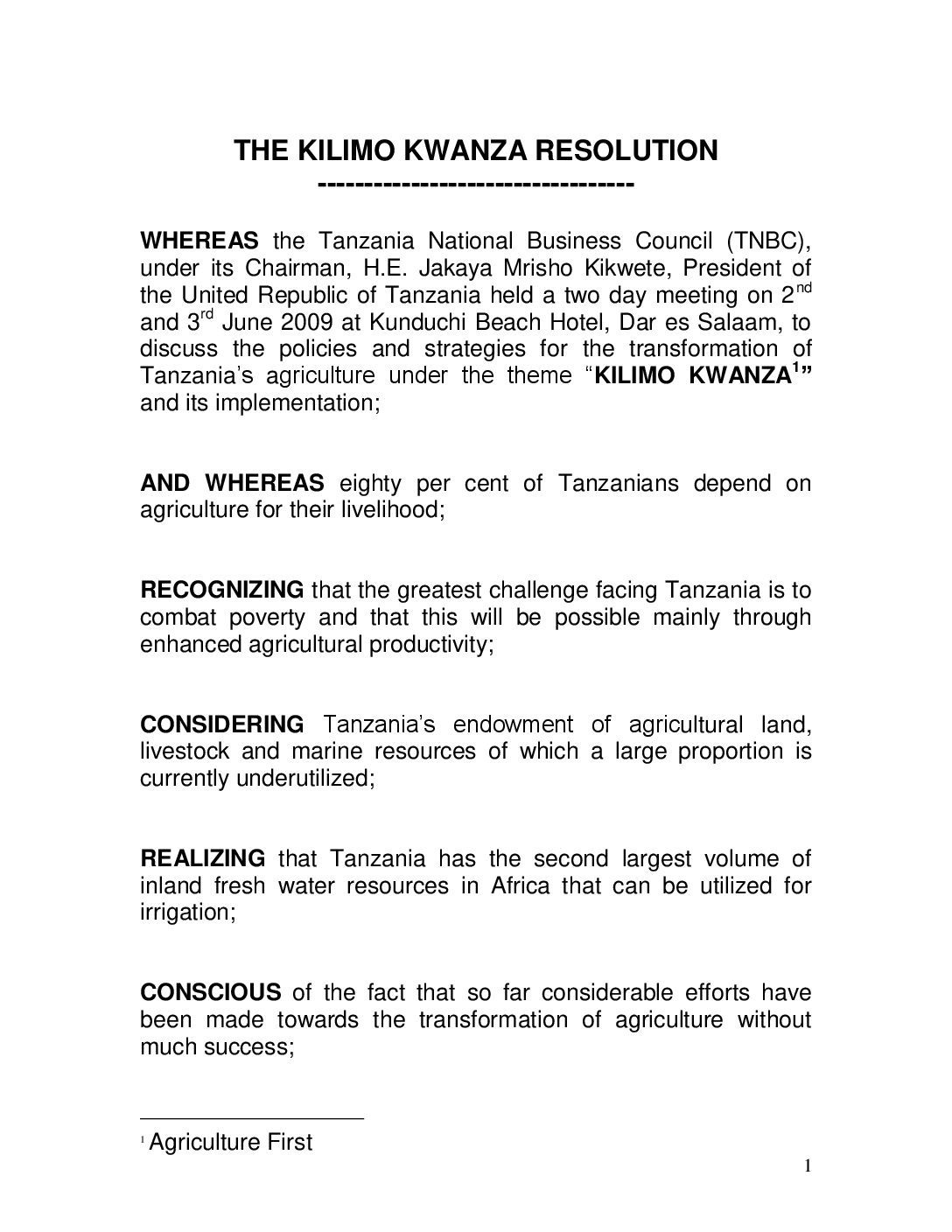Tea Industry in Tanzania: Navigating Through Global Turbulence and Embracing Innovation
Kilimokwaza.org Team
Tanzania’s tea industry presents a narrative of resilience, adaptability, and innovation. Dr. Emmanuel Simbua, director of the Tea Research Institute of Tanzania (TRIT), sheds light on the multifaceted challenges and opportunities facing this sector. Amidst fluctuating global markets and internal constraints, the industry is charting a course towards sustainability and growth.
Global Market Dynamics and Domestic Implications Tea, a cornerstone of Tanzania’s agriculture, has recently faced significant price volatility in the global market, a trend affecting many tea-producing nations. Dr. Simbua highlights the reduced funding to key institutions like the Tanzania Tea Board (TBT), TRIT, and smallholder farmer agencies as a critical concern, directly influencing tea production, quality, and research capabilities.
A Retrospective on 2019: A Year of Prosperity In contrast to current challenges, 2019 was a year of abundance in Tanzania’s tea sector. Substantial investments led to a remarkable increase in tea seedling production, primarily benefiting large-scale producers amid favorable global prices. This period exemplified the potential of strategic investment in enhancing the industry’s output and profitability.
Funding Reductions and Their Ripple Effects The current scenario of reduced funding for pivotal tea institutions has a cascading effect on the entire production chain. Dr. Simbua emphasizes the critical role of processing factories in financing various aspects of farming operations, such as acquiring fertilizers, raising harvesters’ wages, and investing in modern machinery and infrastructure. This funding shortfall hinders these institutions’ abilities to provide necessary inputs, conduct impactful research, incentivize smallholder farmers, and implement quality-improving regulations.
Consumer Trends and Government Initiatives A noticeable shift in consumer preferences, leaning towards alternatives like cold beverages, has impacted the tea market. Responding to these trends, the Tanzanian government is innovating with the introduction of eight new tea varieties, aiming to improve both quality and yield. These initiatives also include empowering the TBT for broader promotional activities, vital as Tanzania heavily depends on tea exports.
Technological Upgrades and Boosting Domestic Consumption Advocating for the modernization of processing technologies in tea factories is a priority, with many currently operating with outdated methods. Dr. Simbua also identifies the need to increase domestic tea consumption, as the current low internal demand poses a significant challenge for the industry’s stability and growth.
Historical Context and Market Diversification Tea in Tanzania has its roots in the colonial era, primarily cultivated as an export crop. This historical trend continued post-independence, neglecting the development of domestic consumption habits. The ongoing conflict between Russia and Ukraine further complicates the scenario, pressing Tanzania to explore alternative markets such as the U.S. and other non-traditional tea importers, to diversify and strengthen its market presence.
Regional Production and New Tea Varieties Tea cultivation in Tanzania is prominent in regions like Iringa, Njombe, Mbeya, Tanga, and Kagera. These areas, along with potential expansion into coffee-growing territories, represent significant opportunities for growth. The new tea varieties introduced, such as TRF 303/178 and TRIT 201/55, are notable for their drought resistance and high yield potential, offering substantial benefits to small-holder farmers in particular.
Soil Management and Irrigation Strategies Experts like Mr. Amosi Makweta from TRIT’s soil department underscore the importance of effective soil management and the judicious use of fertilizers. Concurrently, irrigation specialist Mr. Lameck Maleba discusses the critical role of water management in countering the effects of climate change and ensuring consistent, year-round tea production.
Technology Adoption and Efficiency Enhancement Ms. Magreth Katole, from the technology transfer department, emphasizes the importance of mobilizing farmers to adopt new technologies developed by TRIT researchers. This initiative aims to enhance operational efficiency and productivity in tea farming, ensuring that the industry keeps pace with technological advancements.
Challenges and Opportunities: A Balanced View While the Tanzanian tea industry faces numerous challenges, including market volatility, funding constraints, and climate change impacts, it also possesses significant opportunities for growth and innovation. The introduction of new tea varieties, technological advancements, and a focus on market diversification present a promising future.
Impact of Climate Change and Adaptive Measures Climate change remains a looming challenge, impacting rainfall patterns and temperature ranges critical for tea cultivation. Adaptation strategies, including the development of drought-resistant tea varieties and advanced irrigation techniques, are key to mitigating these impacts.
Enhancing Tea Quality and International Competitiveness Quality improvement is another vital aspect, directly influencing Tanzania’s competitiveness in the global tea market. Ongoing research and development efforts are focused on enhancing tea flavor, aroma, and health benefits, catering to evolving consumer preferences.
Promoting Sustainable Practices in Tea Farming Sustainability in tea farming practices is gaining attention, encompassing environmental conservation, fair labor practices, and economic viability. Initiatives such as organic farming, agroforestry, and the integration of renewable energy sources in processing are steps towards a more sustainable tea industry.
Empowering Smallholder Farmers The role of smallholder farmers, who form the backbone of Tanzania’s tea industry, is crucial. Programs aimed at improving their access to finance, training, and modern farming techniques are essential for their empowerment and the overall growth of the sector.
Future Outlook and Strategic Directions Looking ahead, Tanzania’s tea industry is poised to navigate through its present challenges by leveraging its strengths and embracing innovative approaches. Strategic investments in research, market diversification, technological upgrades, and sustainability initiatives will be key to its future success.
Tanzania’s tea industry, with its rich history and emerging innovations, is at a pivotal juncture. Balancing the challenges posed by global market dynamics with the opportunities presented by technological advancements and new market strategies, it is charting a path towards sustained growth and resilience. This journey, marked by collaborative efforts between government, research institutions, and the farming community, is a testament to the enduring spirit and potential of Tanzania’s tea sector.



